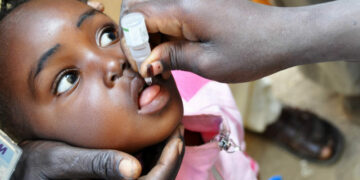As Nigeria confronts the looming threat of Human Metapneumovirus (HMPV), a statement by the Nigeria Centre for Disease Control and Prevention (NCDC) acknowledging a moderate risk level has sparked widespread unease.
The Director-General of NCDC, Dr. Jide Idris, responding to the increased HMPV activity reported in China, UK, France, and Germany during this winter season, said the centre, in collaboration with the Federal Ministry of Health and Social Welfare, is actively monitoring the situation and implementing measures to ensure public health safety.
Many Nigerians have cause to worry, considering the enormous challenges confronting Nigeria’s emergency preparedness.
The country has faced an increasing number of disasters over the past decade, including outbreaks of infectious diseases, air pollution, natural disasters, communal and ethno-religious crises, and acts of terrorism.
While Nigeria’s National Health Policy identifies public health emergency preparedness and response as a major policy thrust, with the goal of reducing the burden of public health emergencies, the 2019 Global Health Security Index shows that Nigeria, with a score of 12.5 out of 100, ranks very low in emergency preparedness and response planning.
According to findings by Researchgate, the current National Disaster Management Framework provides for a comprehensive multisectoral response and incorporates the health ministry/department at all levels of disaster response; however, it does not appear that stakeholders know or utilise the framework well.
The report adds that no specific attention is given to the threat of emerging and re-emerging infectious diseases and their associated public health emergencies.
Although the establishment of the NCDC has helped address some gaps in this respect, the response at the sub-national level remains sub-optimal, as evidenced by the response to the COVID-19 pandemic. Disaster preparedness and response planning are particularly lacking at healthcare facilities.
We recall that the detection of the initial case of Coronavirus (COVID-19) was reported on February 27, 2020, but the country’s knee-jerk response to tackling the virus enabled the scourge to spread across the country, with Lagos as the epicenter.
COVID-19 claimed more than 4 million lives and infected more than 200 million people worldwide, and the pandemic’s impact touched almost every aspect of modern life, upending public health systems, the global economy, travel, supply chains, community and social ties, and how we work.
The country recorded 3,155 coronavirus deaths, according to the World Health Organisation (WHO), with 267,188 reported cases, while 259,953 recovered.
We know that it was out of sheer providence that we avoided higher casualty numbers predicted by the Western world, and certainly not because of actions from the federal government.
In the considered opinion of this newspaper,with the country’s population growth reaching an estimated 222 million, more needs to be done to safeguard its health and safety.
According to data published by the Chinese Center for Disease Control and Prevention, which tracked health data until December 29, 2024, there was a continuous upward trend in respiratory viral infections, including seasonal influenza, rhinovirus, RSV, and human metapneumovirus in the final weeks of last year, particularly in northern provinces of China.
Some other temperate northern hemisphere countries have also reported increases in influenza-like illness and/or acute respiratory infections in recent weeks, following usual seasonal trends.
Subsequent studies confirmed that human metapneumovirus is a common respiratory virus that circulates in many countries during winter and spring. People of all ages can be infected and reinfected throughout their lives. While some people who catch it end up in hospitals with bronchitis or pneumonia, most experience cold or flu-like symptoms – including a cough, fever, nasal congestion, and shortness of breath – and recover after a few days. Young children, older adults, and people with weakened immune systems are at greatest risk of severe illness.
To bolster Nigeria’s defenses, we urge the NCDC and relevant agencies to expand surveillance and laboratory testing capabilities, particularly at international airports and border points. Clear communication and public health education must also remain a priority.
Simple preventive measures—regular hand hygiene, respiratory etiquette, and disinfection of surfaces—should be promoted as vital tools in limiting transmission. Vulnerable populations must be encouraged to seek medical attention promptly for severe symptoms.
While the WHO has not declared HMPV a Public Health Emergency of International Concern, the evolving trends in respiratory illnesses demand vigilance.
The NCDC’s current measures are commendable, but they must be matched by concerted efforts at all levels of government. The 1999 Constitution places health on the concurrent legislative list, requiring cooperation across federal, state, and local governments to ensure a unified and effective response.
Nigeria cannot afford to stumble into another public health crisis unprepared. Strengthening surveillance, enhancing diagnostic capacity, and fostering intergovernmental collaboration are not just strategies but imperatives for safeguarding the health and safety of its citizens.
In this moment of heightened awareness, let us commit to building a resilient health system capable of withstanding future challenges. The cost of inaction is far too great.





